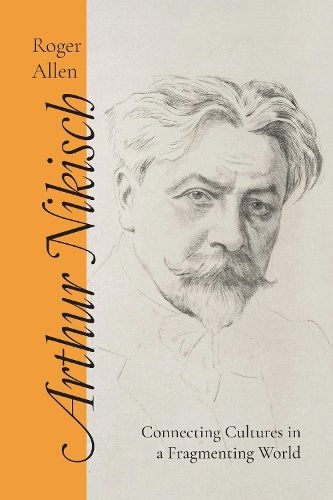Readings Newsletter
Become a Readings Member to make your shopping experience even easier.
Sign in or sign up for free!
You’re not far away from qualifying for FREE standard shipping within Australia
You’ve qualified for FREE standard shipping within Australia
The cart is loading…






Considers Nikisch as a primary link between the later nineteenth century performance practice, and the twentieth-century 'fetishisation' of the superstar conductor as a commercially driven phenomenon.
The Hungarian-born conductor Arthur Nikisch (1855-1922) was among the first of the new breed of virtuoso conductors who came to prominence in the immediate aftermath of Wagner. As a youthful violinist in the Vienna Court Orchestra, he played under Wagner, Verdi and Brahms; in 1895 he reached the pinnacle of German musical life as Chief Conductor of the Leipzig Gewandhaus and Berlin Philharmonic Orchestras. His career was, however, by no means confined to Austro-German lands. He spent four seasons in the USA as Director of the Boston Symphony Orchestra and travelled regularly to conduct in Imperial Russia. His visits to Britain had a significant impact on London's concert life through his associations with the newly opened Queen's Hall, the fledgling London Symphony Orchestra, Covent Garden Opera House and even as piano accompanist at the Bechstein (later Wigmore) Hall. He was also a fervent champion of the music of non-Austro German composers such as the Russian Pyotr Ilyich Tchaikovsky and the Englishman Edward Elgar.
This book considers Nikisch's role and influence as a leading musical executant within the declining Habsburg monarchy and the ascendant German Empire. It also examines how the newly established phenomenon of the virtuoso conductor reached across international boundaries at a time when hardening ideologies and shifting political allegiances were leading towards the disintegration of the old Europe in the carnage of the First World War. It considers Nikisch as a primary link between the later nineteenth century performance practice and aesthetics of Wagner and the twentieth century phenomenon of the all-powerful superstar conductor who came to surpass even the composer in importance.
$9.00 standard shipping within Australia
FREE standard shipping within Australia for orders over $100.00
Express & International shipping calculated at checkout
Considers Nikisch as a primary link between the later nineteenth century performance practice, and the twentieth-century 'fetishisation' of the superstar conductor as a commercially driven phenomenon.
The Hungarian-born conductor Arthur Nikisch (1855-1922) was among the first of the new breed of virtuoso conductors who came to prominence in the immediate aftermath of Wagner. As a youthful violinist in the Vienna Court Orchestra, he played under Wagner, Verdi and Brahms; in 1895 he reached the pinnacle of German musical life as Chief Conductor of the Leipzig Gewandhaus and Berlin Philharmonic Orchestras. His career was, however, by no means confined to Austro-German lands. He spent four seasons in the USA as Director of the Boston Symphony Orchestra and travelled regularly to conduct in Imperial Russia. His visits to Britain had a significant impact on London's concert life through his associations with the newly opened Queen's Hall, the fledgling London Symphony Orchestra, Covent Garden Opera House and even as piano accompanist at the Bechstein (later Wigmore) Hall. He was also a fervent champion of the music of non-Austro German composers such as the Russian Pyotr Ilyich Tchaikovsky and the Englishman Edward Elgar.
This book considers Nikisch's role and influence as a leading musical executant within the declining Habsburg monarchy and the ascendant German Empire. It also examines how the newly established phenomenon of the virtuoso conductor reached across international boundaries at a time when hardening ideologies and shifting political allegiances were leading towards the disintegration of the old Europe in the carnage of the First World War. It considers Nikisch as a primary link between the later nineteenth century performance practice and aesthetics of Wagner and the twentieth century phenomenon of the all-powerful superstar conductor who came to surpass even the composer in importance.